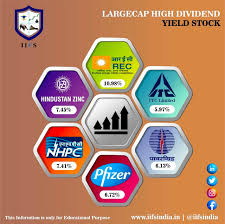
Which stocks were the most profitable for growth six months back? Wall Street faces new challenges today so the stocks of six months ago may not be as relevant. The stimulus has already started to have ramifications. The Fed cannot tolerate more inflation because of the increased payouts from government. For those looking to increase their portfolios, the best stocks are still an option. In this article, we'll talk about three of these stocks and why they may be worth looking at today.
Align Technology
Align Technology's market share is around 10%. This company has the potential to grow and increase its revenue. The company has also focused on expanding into the international market. The company sold more straighteners to Europe and the Middle East last year than any other country. To help meet the high demand in these regions, Align Technology is developing a new global manufacturing hub in Poland. But there are issues you need to be aware.

The PEG Ratio provides a more comprehensive view than P/E. It takes into account growth and allows investors compare high-growth companies. EBITDA measures a company’s profitability and is $1.1billion. This company does no pay dividends. This makes it one of the best stocks for growth. You should attend the annual meeting if you intend to keep Align Technology longer than one year.
Universal Display Corporation
Universal Display Corporation is one of our top stocks for growth companies. The company's past history indicates that there is potential for growth. Universal Display's stock may rise due to a new panel-making partner, and the growing number OLED-equipped phones. Universal Display is also looking to expand its China market presence. It should be a good pick for growth investors if all these factors work out.
Universal Display Corporation may be a pioneer in OLED technology research, but they don't produce the devices we use every daily. In fact, the company holds several important patents in the industry, most of which are related to efficient phosphorescent OLED emitters. The company's PHOLED material can be found in nearly all AMOLED displays. Universal Display's stock ticker is OLED, while its rival eMagin is an early developer of OLED microdisplays and focuses on the defense and consumer VR/AR markets. This stock ticker is great for growth investors, even though it has a slant on future.
Shopify
Shopify could be a great stock to consider if you are looking for high-growth stocks. Shopify could have a huge advantage over Amazon because of its recent strategic partnerships with TikTok (Facebook) and Facebook. Shopify is also able to generate around 40% of its revenues from subscriptions. While Shopify has high growth potential, it also carries a relatively high price tag. Therefore, it's best to avoid it if you're a risk averse investor.

Shopify maintains a strong position in e-commerce despite these potential risks. As more customers shop online, Shopify's stock prices rose from $416 a $1,762 While Shopify's revenue growth has been brisk, it lacks clear guidance for its upcoming fiscal year. The company's most recent earnings guidance stated that it expected a lower revenue growth for Q4 FY 2022. It didn't provide any details.
FAQ
What is a bond and how do you define it?
A bond agreement is an agreement between two or more parties in which money is exchanged for goods and/or services. It is also known to be a contract.
A bond is usually written on a piece of paper and signed by both sides. This document includes details like the date, amount due, interest rate, and so on.
The bond can be used when there are risks, such if a company fails or someone violates a promise.
Many bonds are used in conjunction with mortgages and other types of loans. This means that the borrower must pay back the loan plus any interest payments.
Bonds are also used to raise money for big projects like building roads, bridges, and hospitals.
It becomes due once a bond matures. The bond owner is entitled to the principal plus any interest.
If a bond isn't paid back, the lender will lose its money.
What is the difference?
Brokers are individuals who help people and businesses to buy and sell securities and other forms. They handle all paperwork.
Financial advisors are experts on personal finances. Financial advisors use their knowledge to help clients plan and prepare for financial emergencies and reach their financial goals.
Banks, insurers and other institutions can employ financial advisors. You can also find them working independently as professionals who charge a fee.
You should take classes in marketing, finance, and accounting if you are interested in a career in financial services. Also, you'll need to learn about different types of investments.
How can I find a great investment company?
It is important to find one that charges low fees, provides high-quality administration, and offers a diverse portfolio. Fees vary depending on what security you have in your account. Some companies don't charge fees to hold cash, while others charge a flat annual fee regardless of the amount that you deposit. Some companies charge a percentage from your total assets.
You also need to know their performance history. A company with a poor track record may not be suitable for your needs. You want to avoid companies with low net asset value (NAV) and those with very volatile NAVs.
It is also important to examine their investment philosophy. A company that invests in high-return investments should be open to taking risks. If they are not willing to take on risks, they might not be able achieve your expectations.
Statistics
- Ratchet down that 10% if you don't yet have a healthy emergency fund and 10% to 15% of your income funneled into a retirement savings account. (nerdwallet.com)
- Even if you find talent for trading stocks, allocating more than 10% of your portfolio to an individual stock can expose your savings to too much volatility. (nerdwallet.com)
- The S&P 500 has grown about 10.5% per year since its establishment in the 1920s. (investopedia.com)
- US resident who opens a new IBKR Pro individual or joint account receives a 0.25% rate reduction on margin loans. (nerdwallet.com)
External Links
How To
How to Invest in Stock Market Online
Investing in stocks is one way to make money in the stock market. There are many options for investing in stocks, such as mutual funds, exchange traded funds (ETFs), and hedge funds. The best investment strategy is dependent on your personal investment style and risk tolerance.
Understanding the market is key to success in the stock market. Understanding the market, its risks and potential rewards, is key. Once you've decided what you want out your investment portfolio, you can begin looking at which type would be most effective for you.
There are three major types of investments: fixed income, equity, and alternative. Equity is ownership shares in companies. Fixed income refers to debt instruments such as bonds and treasury notes. Alternatives include commodities like currencies, real-estate, private equity, venture capital, and commodities. Each category comes with its own pros, and you have to choose which one you like best.
Two broad strategies are available once you've decided on the type of investment that you want. The first is "buy and keep." This means that you buy a certain amount of security and then you hold it for a set period of time. Diversification, on the other hand, involves diversifying your portfolio by buying securities of different classes. You could diversify by buying 10% each of Apple and Microsoft or General Motors. You can get more exposure to different sectors of the economy by buying multiple types of investments. You are able to shield yourself from losses in one sector by continuing to own an investment in another.
Another key factor when choosing an investment is risk management. Risk management allows you to control the level of volatility in your portfolio. If you were only willing to take on a 1% risk, you could choose a low-risk fund. On the other hand, if you were willing to accept a 5% risk, you could choose a higher-risk fund.
Learning how to manage your money is the final step towards becoming a successful investor. The final step in becoming a successful investor is to learn how to manage your money. Your short-term, medium-term, and long-term goals should all be covered in a good plan. Then you need to stick to that plan! Don't get distracted with market fluctuations. Stick to your plan and watch your wealth grow.